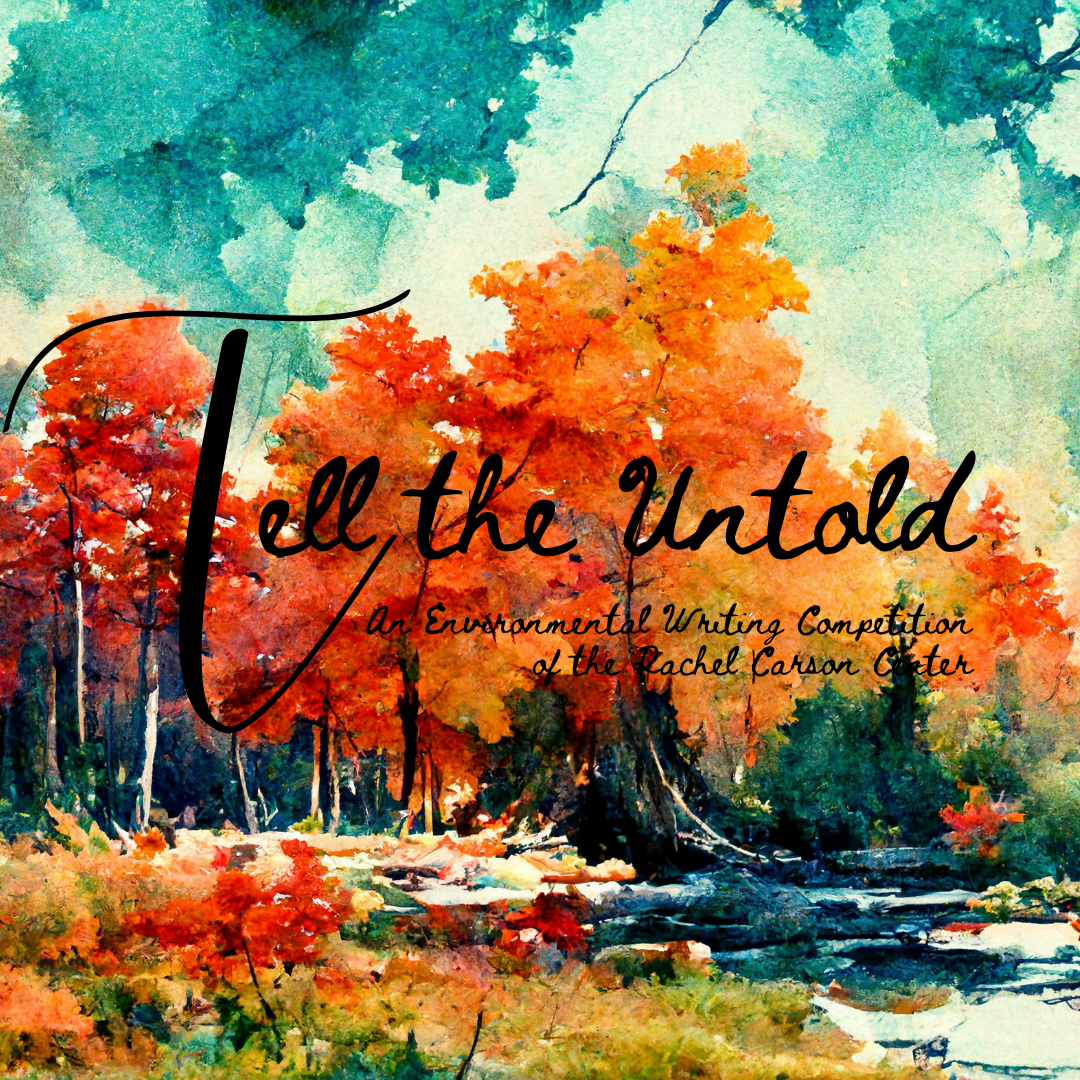Tell the Untold! Winners of the Environmental Writing Competition
29.08.2025
Thank you to all the authors who generously shared their texts as entries for our Tell the Untold! Environmental Writing Competition. We were pleased to receive over 140 entries across the competition’s three categories (short fiction, creative nonfiction, and reflexive essay). The texts came from all over the world and their authors ranged from emerging voices to established names. It was a pleasure to see the wide variety of narrative modes on display!
The decision has been thus extremely difficult, but after careful deliberations, our jury is now able to announce the competition winners, along with two honorable mentions in each category.
Winners
Short Fiction
Rachel Desiree Felix, “The Mangrove Doesn’t Forget”: The judges praised the delicacy of the writing and its attentiveness to the local Malaysian context. They also appreciated its subtle play on environmental memory: the different ways in which the house, merging with the mangrove roots spreading beneath it, grants access to forgotten histories—social histories of (colonial) dispossession, but also natural histories of (Indigenous) reclamation buried within the recesses of deep time.
Creative Nonfiction
Michaela Vieser, “Whalefall”: The judges were deeply impressed with the emotional range and intensity of the piece; with its skillful merging of history and myth; and with the scientific accuracy of its parallel—if at the same time very different—physiological accounts. The personal experience of cancer as a whalefall-like journey into the depths is memorably described, as is the movement that journey traces from pain to acceptance and the strangely regenerative processes it entails.
Reflective Essay
Zana Fraillon, “Time After the Hero — Or, in Proposing the Age of the Anthropoiescene”: The judges loved the inventiveness of the piece, which works in familiar territory but does so in refreshingly creative ways. They especially admired its suppleness: its seemingly effortless ability to switch between intellectual and emotional registers, and its linguistic resourcefulness in reflecting on, and producing transformative fables—“alter tales”—to combat the shocking ecological violence of, today’s “EdgeTimes.”
Honorable Mentions
Fiction
- Abi Andrews, “JUDAS DONKEY”: A memorable animal-centered story set in outback Australia, consistently atmospheric and chillingly portrayed.
- Isaac Yuen, “Tales from Coral County”: An inventive, Calvino-esque meditation on coral formations and the potentially lethal dangers they face.
Nonfiction
- Tathagat Bhatia, “A Few Hazy Anthropocenes”: A skilfully controlled reflection on haze as both a form of air pollution and a metaphor for the uncertainty of our times.
- Wan Yin Kim Fung, “What Cannot Be Unearthed”: A sensitively told account that quite literally gives pause to the toxic fallout of nineteenth- and twentieth-century copper mining in eastern Japan.
Reflective Essay
- Vera Krause, “How to Reimagine Our Doomed Futures Through Ursula K. Le Guin’s Lens:
A Case Study in the Argentinian Wetlands”: A sympathetic account of a so-called capybara “invasion” in contemporary Buenos Aires, taking its cue from the anarchist fantasy of Ursula K. Le Guin to show the difference between invading and reclaiming one’s space. - Sonji Shah, “The Story of Geology”: A clever take on the “lithic imaginary” in Bjornerud, Jemisin, and Macfarlane, showing how underground worlds can excite new thoughts on what it means to belong to the earth.
Congratulations! Our team will contact all winners soon to make arrangements for receiving their prizes. Additionally, we will be in touch with all the winning and honorable mention authors for the publication of their pieces.
The jury consisted of Catherine Bush, Christof Mauch, and Graham Huggan.


